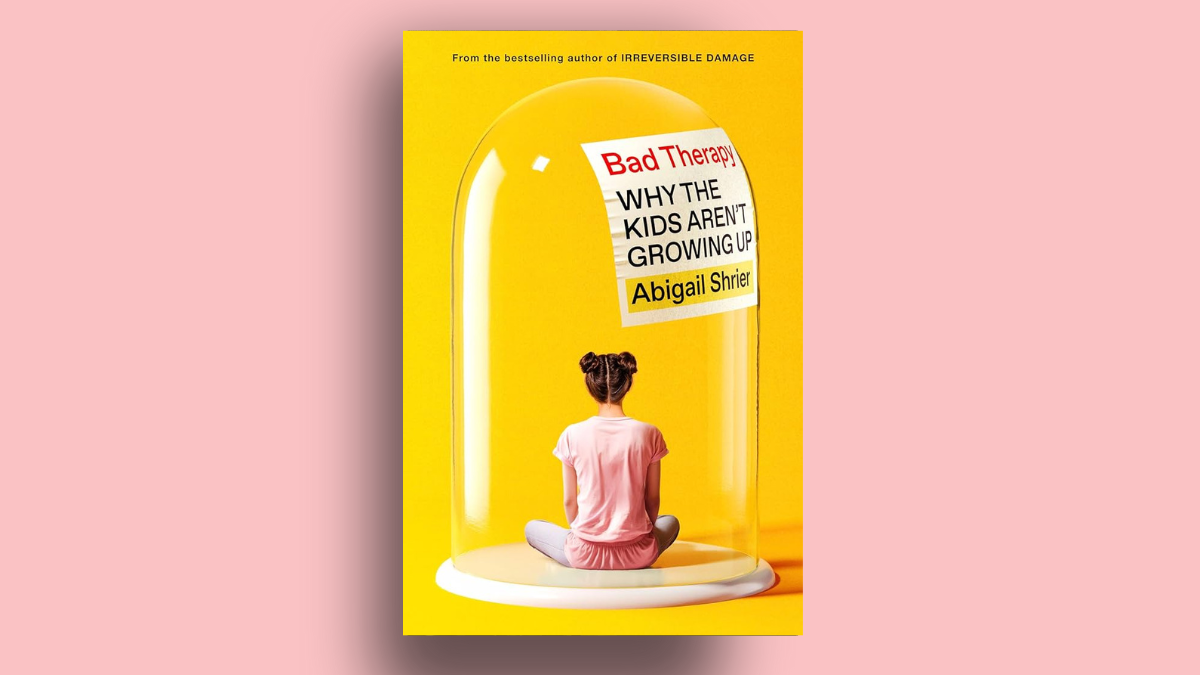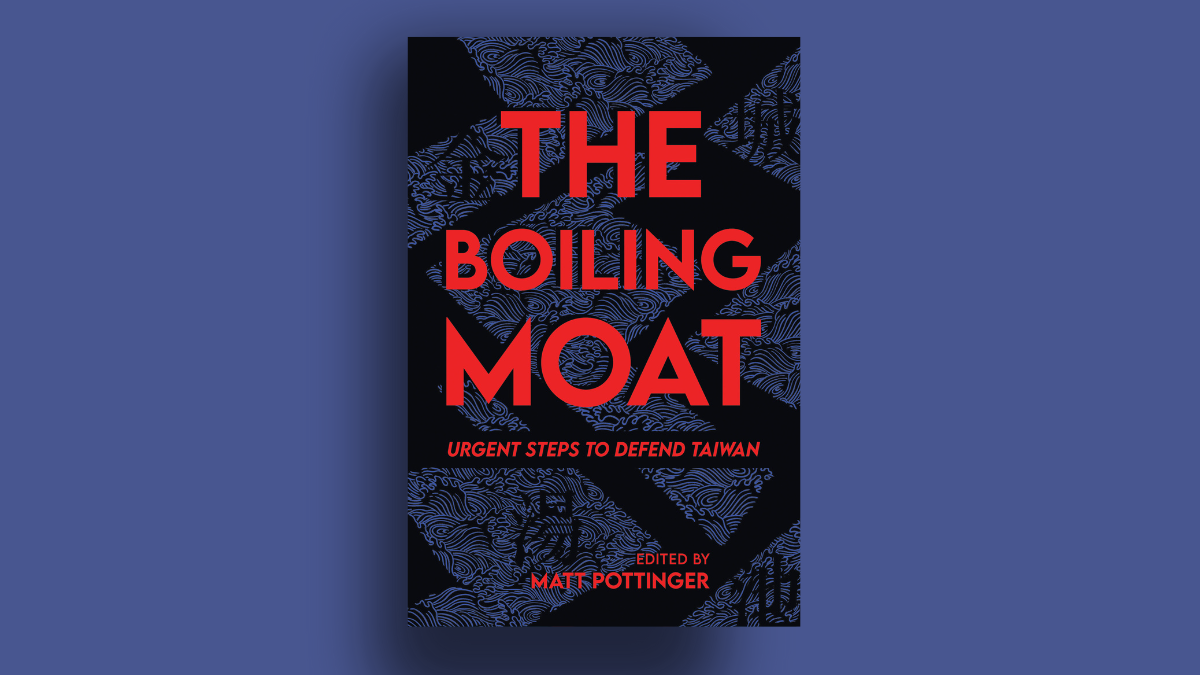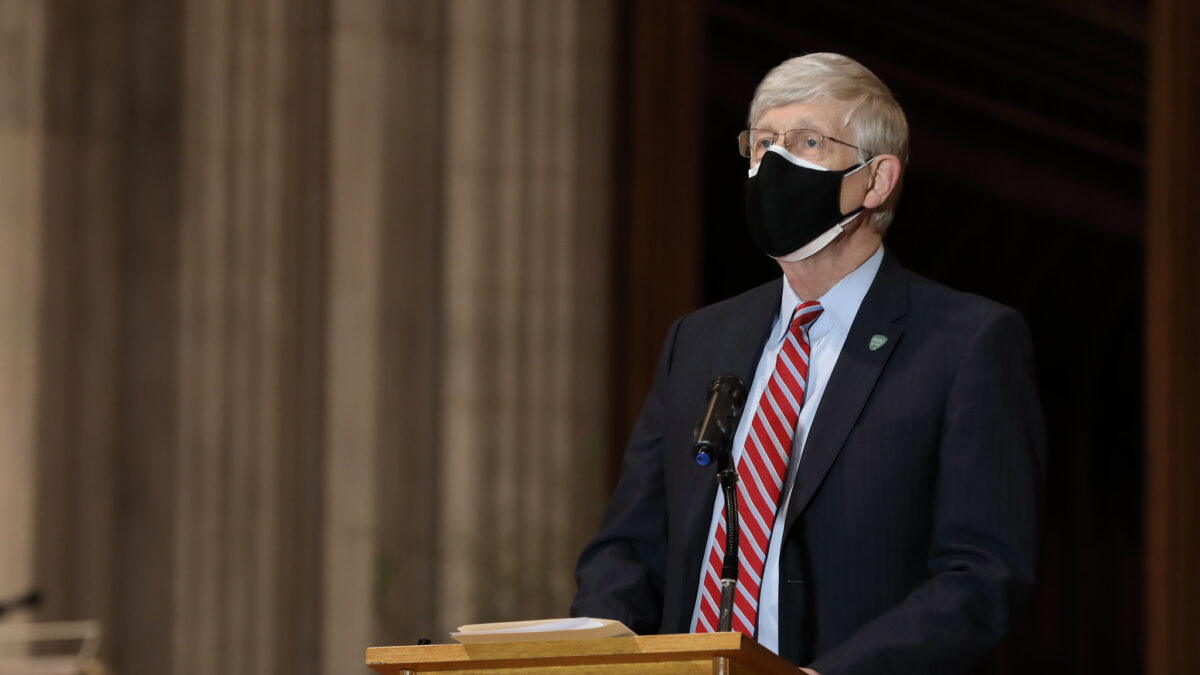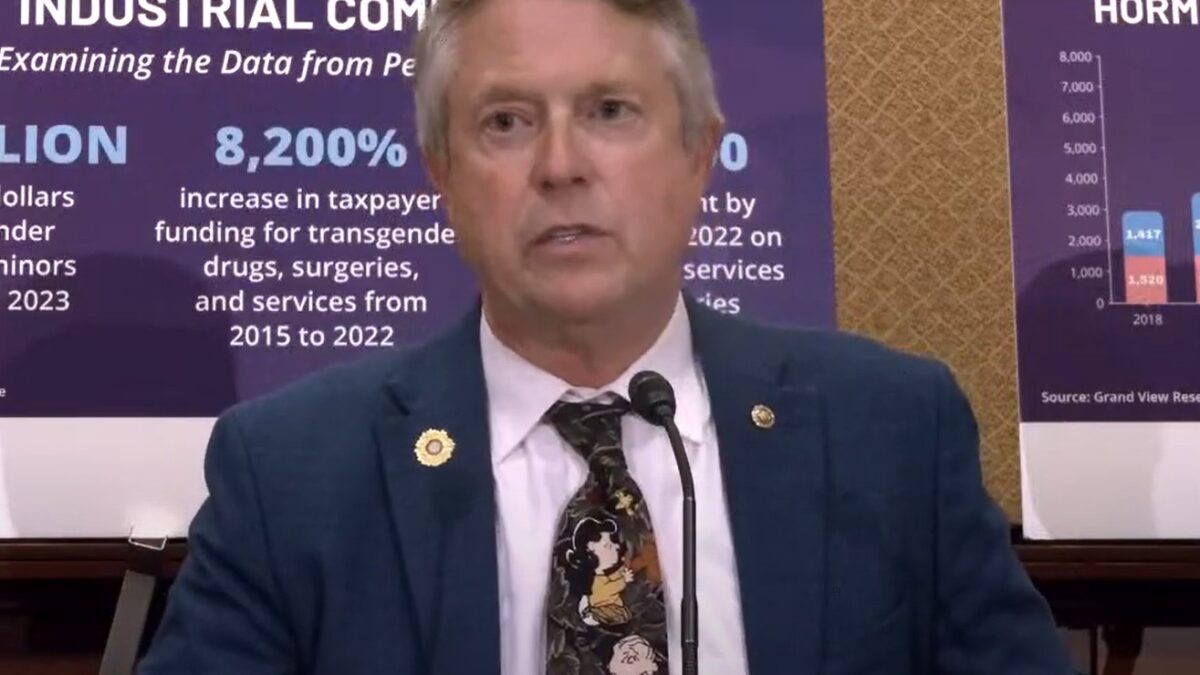When undergraduates came through university education programs 30 years ago, professors drubbed into teacher candidates the importance of fostering in their students an internal locus of control, or the belief that one’s choices and actions drive one’s outcomes: If I choose not to do my homework, my grades will suffer because of my poor decision.
Today, however, children learn exactly the opposite: If my grades are low, it’s because I have trauma, a learning disability, an emotional disability, an unaccommodating learning environment, an emotionally absent parent, or I’m being bullied, yadda, yadda, yadda. In other words, kids today are taught to have an external locus of control: Their failures are always someone else’s fault, and they can’t be expected to overcome difficulties because they’re just too broken and fragile.
With her new book, Bad Therapy: Why the Kids Aren’t Growing Up, Abigail Shrier uncovers the supposedly well-intentioned roots of this therapeutic model of childrearing and documents the havoc it wreaked.
A cultural shift away from overly authoritarian parenting and education toward a kinder, more considered hand from Mom and Dad and teacher may have begun with the admirable goal of caring well for children’s inner landscapes. But when we see among our adolescents and teens skyrocketing rates of depression, suicidal ideation, prescriptions for psychotherapeutic drugs, and a host of other mental health crises, it’s time to admit that something has gone awry since parents were told that spankings represented profligate child abuse.
“Gentle parenting” and “trauma-informed care” have displaced the age-old understanding that children should be brought up to mind their parents, respect their elders, and develop into productive citizens. The “child-focused” perspective on parenting and education insists instead that “children know what they need” and that “being happy” is the ultimate culmination of a life well lived. Unfortunately, as Shrier has aptly revealed through copious interviews with seasoned mental health professionals, “the more vigorously you hunt happiness, the more likely you are to be disappointed.”
Spawned in part out of 1940s humanistic psychology by the likes of Abraham Maslow, for whom self-actualization represented the pinnacle of personal success, and Carl Rogers’ “unconditional positive regard” (the belief that everyone’s subjective “truth” should be affirmed), our current cultural zeitgeist insists upon immediate therapeutic treatment — via mental health professionals, school staff, and well-read parents — for any child who experiences anything less than an uninterrupted state of emotional bliss.
But what happens when every sad experience and moment of disappointment requires some form of attendant affirmation? Shrier catalogs 10 deleterious results:
- Kids are taught to pay close attention to all of their feelings. But “emotions are not only unstable, they’re also highly manipulable.” A therapist who doesn’t want to see his or her income stream dry up has no incentive to help a child successfully deal with uncomfortable feelings, and a parent who constantly asks, “How are you feeling? Do you need anything from me?” is certain to raise a child who can’t manage feelings or experiences independently.
- Kids learn to ruminate ad infinitum on their feelings and experiences. But rumination — mulling incessantly on one bothersome issue — “is the major predictor for depression.” Maybe our grandparents’ “least said, soonest forgotten” adage was right after all.
- Happiness is supposedly the goal of therapy, but emotional suffering gets rewards. “Once [kids] get validation … for their mental health crises, ‘they don’t break out of that rut’” explains Cody, a high school senior who describes the self-reinforcing nature of victimhood among today’s students.
- Worries are affirmed and accommodated instead of overcome and extinguished. Rather than help a child with an outsized fear of dogs figure out how to get comfortable around canines, today’s therapeutic model requires that the child be ensconced in “safe spaces” where the things that “trigger” anxiety are never allowed to approach. “We’re making our kids more fearful and less tolerant of the world.”
- Children are over-monitored. A lack of agency as well as increased anxiety are among the harmful results of constantly hovering over kids. “When psychologists do research where they want to add an element of stress … they simply add an observer.”
- Diagnoses are bandied about like candy popped out of Pez dispensers. Any child who isn’t unrelentingly gleeful — or who can’t sit still in the classroom for a 45-minute math lesson followed by a 45-minute science lecture, followed by a 45-minute language arts activity — is targeted for examination and diagnosis: “It’s not nothing for a kid to grow up believing there’s something wrong with his brain.”
- Drugs often follow diagnoses. Why is this a problem? First, “altering your child’s brain chemistry is about as profound a decision as you’ll ever make as a parent.” Furthermore, “when you start a child on meds, you risk numbing him to life at the very moment he’s learning to calibrate risks and handle life’s ups and downs. He’s likely to believe that he can’t handle life at full strength.”
- Kids are encouraged to share their “trauma.” We’ve been conditioned to believe that the only way to get over something is to talk about it. But research points to just the opposite for many people. “[A] significant [failing] of psychotherapy is its refusal to acknowledge that not everyone is helped by talking about their problems.”
- Young adults are encouraged to cut off “toxic” families. “One of the most damaging ideas to leach into the cultural stream is that all unhappiness in adults is traceable to childhood trauma.” By blaming Mom and Dad for everything that’s wrong with their patients, therapists and self-proclaimed therapists (i.e., school counselors and even teachers who often hold no more than bachelor’s degrees in non-therapeutic fields) encourage children to sever ties with the very ones who know them best and love them most.
- Dependency upon treatment is encouraged. “A patient inducted into the habit of consulting with the therapist may become convinced that she cannot ever act without the express approval of an authority figure.” In other words, kids are trained to give up their agency, intellect, and independence.
The therapeutic model of childrearing continues to billow over, around, into, and through the nation’s schools, homes, and consciousness like a silent and deadly gas, debilitating the very people it purportedly intends to help. Psychological tools no longer encourage growth; instead, they embrace and reinforce stagnation. Childrearing in the counseling office, at school, and at home has swung 180 degrees from teaching responsibility to casting blame, from developing mature behavior to coddling self-centered feelings, from respecting parents’ wisdom and authority to denigrating and breaking up families, from fostering resilience to fomenting victimhood.
What’s the cure, according to Shrier? Parenting: good, old-fashioned, Mom-and-Dad-know-best parenting that loves and disciplines in equal measure.
If you are raising a child, or teaching a child, or if you know any children, or if you know any of the people who are raising or teaching children, get and read this book. Bad Therapy: Why the Kids Aren’t Growing Up can and needs to change the world in which over-therapied kids grow up without learning to be resilient.









